 |
|||||||||||||
|
|
|||||||||||||
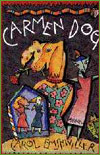  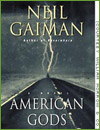 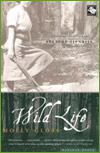 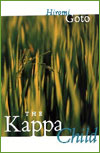 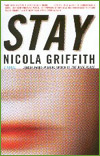 
|
Continued... Emshwiller, Carol.Carmen Dog. (Mercury House, 1999) Carol Emshwiller presents a universe where stereotypical roles for women are breaking down as the women themselves take on animal traits and the animals become more like women. As the extremes blend, Emshwiller's satire becomes increasingly bizarre and madcap. This is a wild ride where you want to watch out for wolverines. (Gregory Frost) Fowler, Karen Joy. Sarah Canary. (Holt, 1991) The book is riveting and strange, full of half-glimpsed supernatural occurrences, as a seemingly mad woman is "returned" to her world by a reluctant Chin Ah Kin, a Chinese railway worker. He is forced to act as her guide, defender and hero, and in the process becomes a magnet for much of what is ugly in us. (Gregory Frost) Gaiman, Neil. American Gods. (HarperTrophy, 2002) Gaiman zigzags through a number of genres (fantasy, horror, mysteries, thrillers, and the great American road novel, to name just a few) in this a panoramic story about an ex-con on a hero's journey across the U.S. It's an unusual tale exploring modern American life, portraying the old gods who live at the margins of it and the new gods emerging from our restless culture. (Terri Windling) Garner, Alan. Strandloper. (Harvill Press, 1999) Garner has created his "incantatory" tale out of prose and verse, myth and nursery rhymes, old English history and slang, and the real life story of William Buckley, an 18th century Englishmen transported to Australia who became deeply immersed in Aboriginal life. It's an unusual and remarkable novel. (Terri Windling) Gloss, Molly. Wild Life. (Houghton Mifflin, 2001) Set in the Cascade Mountains of the Pacific Northwest in the early 1900s, this historical/magical/adventure/western/feminist novel tells the story of Charlotte Bridger Drummond - drummfreethinker, single mother of five sons, and writer of women's adventure stories. The narrative, in the form of Drummond's journal entries, paints a vivid portrait of frontier life. (Terri Windling) Goto, Hiromi. The Kappa Child. (Red Deer College Press, 2001) Inhabiting the interstices between domestic realism, contemporary fantasy, literary horror, and coming-of-age fiction, this remarkable novel is the haunting story of a Japanese-Canadian girl growing up in rural Alberta — a beautifully penned tale wound through with Japanese "kappa" legends. The Kappa Child won the Commonwealth Writers' Prize and the James Tiptree Jr. Award. (Terri Windling) Goudge, Elizabeth.The Elliots of Damerosehay. (Hodder & Stoughton, 1957; Out of Print) An omnibus edition of three novels about the Elliot family: The Bird in the Tree (1940), The Herb of Grace (1948), and The Heart of the Family (1953). Domestic realism, set in war-time England, melded with romance, meditations on faith, and the distinctly magical influence on the characters of the two houses in which the action unfolds. (Delia Sherman) Griffith, Nicola. Stay. (Vintage, 2003) Even the publishers didn't know how to categorize this one: the hardcover was marketed as mainstream literary, the paperback as genre crime noir! (Susan B. Westerbook) Dorothy Allison called it "a powerful character study in the rough domain of mystery and adventure." (Ellen Kushner) Hand, Elizabeth. Bibliomancy. (PS Publishing, 2003) Hand is a perceptive chronicler of life in the late-20th/early-21st centuries, penning stories that ignore genre boundaries to concentrate on character and theme. This volume contains her brutally horrific, award-winning story "Cleopatra Brimstone," along with the bewitching award-nominee "The Last Trumps," the elegiac "Pavanne for a Prince of Air," and Hand's clever Dickensian tale, "Chip Crockett's Christmas Carol". (Terri Windling) M. John, Harrison. Travel Arrangements. (Orion 2000) As the Amazon.co.uk Review says: "The author's previous books have often been labelled as science-fiction or fantasy but the stories gathered here demonstrate the limitations of such categories. Harrison's writing balances disquietingly on the edge of realism and careful descriptions of quotidian life and place, shifting into intimations of worlds of feeling and states of mind briefly glimpsed." (Terri Windling) |
|||||
| previous page | 1 | 2 | 3 | 4 | 5 | next page | ||||||